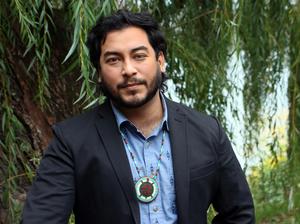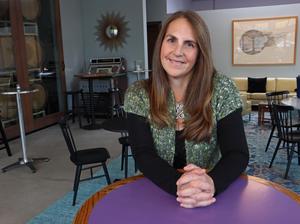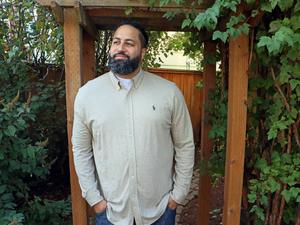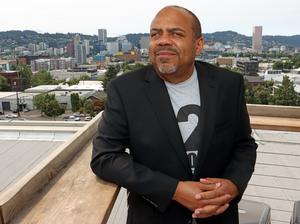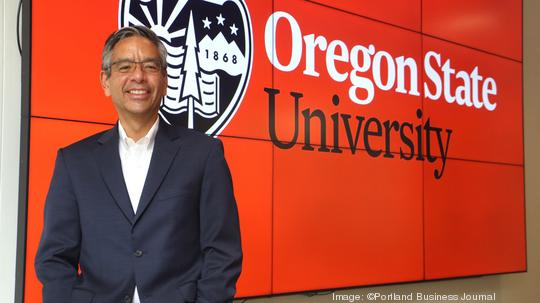
Charlie Kawasaki’s path to a tech career is punctuated by at least one lucky break — an internship at the University of Washington’s Academic Computer Center.
He worked in the facility that housed the university's computers at a time when computers took up entire buildings. Kawasaki eventually joined a database startup called Micro Rim and went on to work at other software companies and at one point started his own company.
Through it all, he never forgot that first break, which has inspired him to help other young people find their own paths into the industry. That has included starting and running a cybersecurity summer camp for kids, mentoring students at universities and community colleges, and helping to raise awareness and fundraising for organizations.
He’s been part of the Portland technology industry since 1990 when he was recruited by Central Point Software. The change between then and now is huge.
“The number of companies that you would consider in the tech space was very, very small,” he recalled, noting there were some big ones like Intel and maybe a few startups. “Now, it’s completely different. We have a vast array of startups and we have tech companies in nearly every sector of the U.S. economy.”
We caught up with Kawasaki to talk about his career and his passion for STEM education.
What sparked your interest in technology? It was at my high school. I had the opportunity to take a computer science class, a programming class as a junior. And I discovered that it was incredibly rewarding in terms of being a creative endeavor. It's kind of like being paid to solve puzzles. It really was something that I enjoyed doing. And then it seemed, at the time, it was really an up-and-coming field. I believed there would be lots of opportunities to have a career.
Your internship at the University of Washington sounds like a pivotal element of your career path. Tell me about that program. How I managed to get to the University of Washington internship at all, was such an unusual opportunity. It was a federally funded program for minority, low-income students. And I could work at any nonprofit organization that qualified as part of that program. The opportunity came up at the University of Washington and it dovetailed perfectly with what I had already discovered, something that I was good at. It was such a good match that it didn't really require any particular thought. It was, oh, there's an opportunity and it’s exactly what I want to do. Just go for it.
Is just jumping into things something you frequently do? To just go and try things? I would say I’m guilty of that.
How did that internship shape your work within youth-oriented STEM programs? That's certainly played a gigantic role in why I'm as involved with youth STEM and educational activities as I am. I was really lucky. I received a lot of mentorship from professionals who took an interest in me for whatever their reasons were. If it wasn't for that, I would not be here today. I've been able to really succeed and prosper in the tech industry. Being involved in these STEM activities is certainly my way of paying it forward.
With all your work with different programs and boards, how do you talk to your peers about getting involved, especially those who don’t have first-hand experience like you? I encourage people constantly. I’m in the middle of a whole round of encouraging colleagues to get involved in a variety of activities, whether it’s joining advisory boards or volunteering for various initiatives. Rather than just focusing on the giving back aspect, which personally resonates for me, there are a lot of other reasons to get involved. That can be things like building your Rolodex or developing leadership skills and experience.
What is your advice for up-and-coming executives who want to mentor but don’t know how to start? The easiest thing to do is just say, yes. Get involved. There are many organizations that would benefit. There is a first time for everyone. You can join a board or volunteer, whether it’s the Tech Association of Oregon or other programs. Typically, you’ll find there are plenty of people to help provide guidance. As a volunteer you are able to make of it what you choose. There are organizations where just providing occasional advice or attending a board meeting is OK. Once you are there you can develop greater insight into where the best opportunities are to take advantage of your skill set.
Charlie Kawasaki
Title: Chief Technical Officer at PacStar Communications
Hometown: Grew up in Seattle, but Portland has been home since the ‘90s
Education: Studied at University of Washington
Boards: Technology Association of Oregon; OSU College of Engineering industry advisory board; Cybersecurity Advisory Council at Mount Hood Community College; Oregon Cybersecurity Advisory Council
Podcast he’s listening to: “Making Sense Podcast with Sam Harris”
Last thing he binge watched: "NCIS"
Favorite Portland takeout: Bollywood Theater
